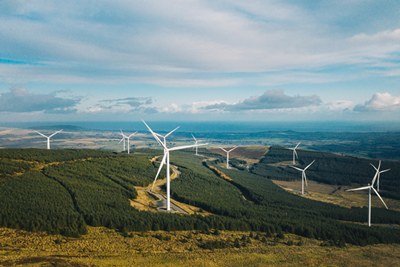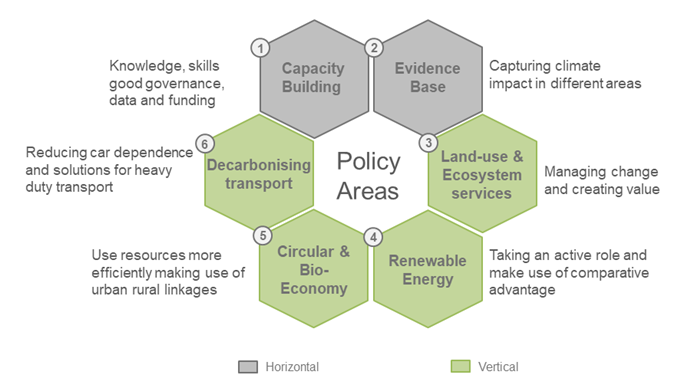OECD Rural development and rural well-being
Realising opportunities in rural regions in the transition to net-zero
Rural Agenda for Climate Action: Addressing climate change and transitioning rural regions to net-zero economies
WHAT'S THE ISSUE?
|
Rural regions have an essential role to play in the transition to net-zero emissions economies and to build resilience against climate change - yet rural development policies do not always reflect this. Rural regions cover roughly 80% of the territory in OECD counties and contain natural resources, biodiversity and ecosystem services needed to sustain our lives. They produce food and energy, clean air, detoxify waste, clear water, sequester carbon, and provide recreational opportunities. Simultaneously, there is an urgent need to transform emission-intensive activities in rural regions into environmentally friendly and net-zero alternatives. GHG emissions per capita in rural regions are particularly high, also because rural firms and households lack sustainable alternatives. Increased frequency and intensity of extreme weather events threaten their resource-dependent livelihoods (mining, forestry, fisheries, energy and tourism). Rural communities can also struggle to adapt and prepare for transformational challenges required to face climate change pressures. Population ageing, limited economic diversity, dependence on external markets and missing (digital) infrastructure all exacerbate their vulnerability. |
 |
WHAT NEEDS TO BE DONE?Rural policies need to become climate-proof and actively take advantage of new development opportunities. A collaborative and place-based approach reflecting local interests, circumstances, and geographic location can often accelerate challenges and opportunities related to climate change for rural communities. Policymakers need to think about integrated policy approaches at the local level to reinforce the impact of different actions and address trade-offs. WHAT CAN THE OECD OFFER?The OECD calls for a stronger role for rural policies in reaching climate change goals and will work with countries to develop rural development opportunities and support the net-zero emission transition in rural regions. The OECD has identified net-zero opportunities for rural regions in six policy areas. The first two are considered to be horizontal as they are enabling conditions fort the other more thematic, vertical policy areas. |
|
AREAS OF WORK
|
Events
|
Rural Agenda for Climate Action
Read full Agenda for Climate Action (EN) Lire le programme d’action rural en faveur du climat (FR) Highlights Brochure Rural Agenda for Climate Action Express your support for the Rural Agenda for Climate Action |
Rural Well-being
|
OECD Regional Outlook
The section on rural regions highlights the need for rural regions to contribute to the net-zero emission transition
|
RELATED WORK ON RURAL POLICY
- OECD Principles on rural policy
- Rural innovation
- Rural service delivery
- Indigenous communities
- Mining regions and cities
- Rural Development Conferences
CONTACT
For more information contact Lisanne Raderschall
Related Documents
